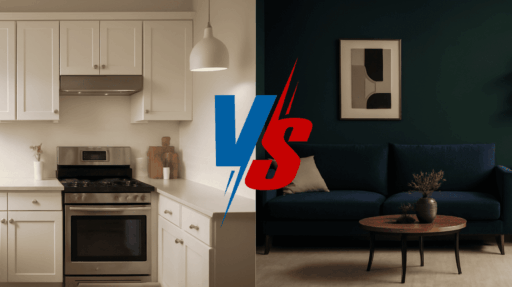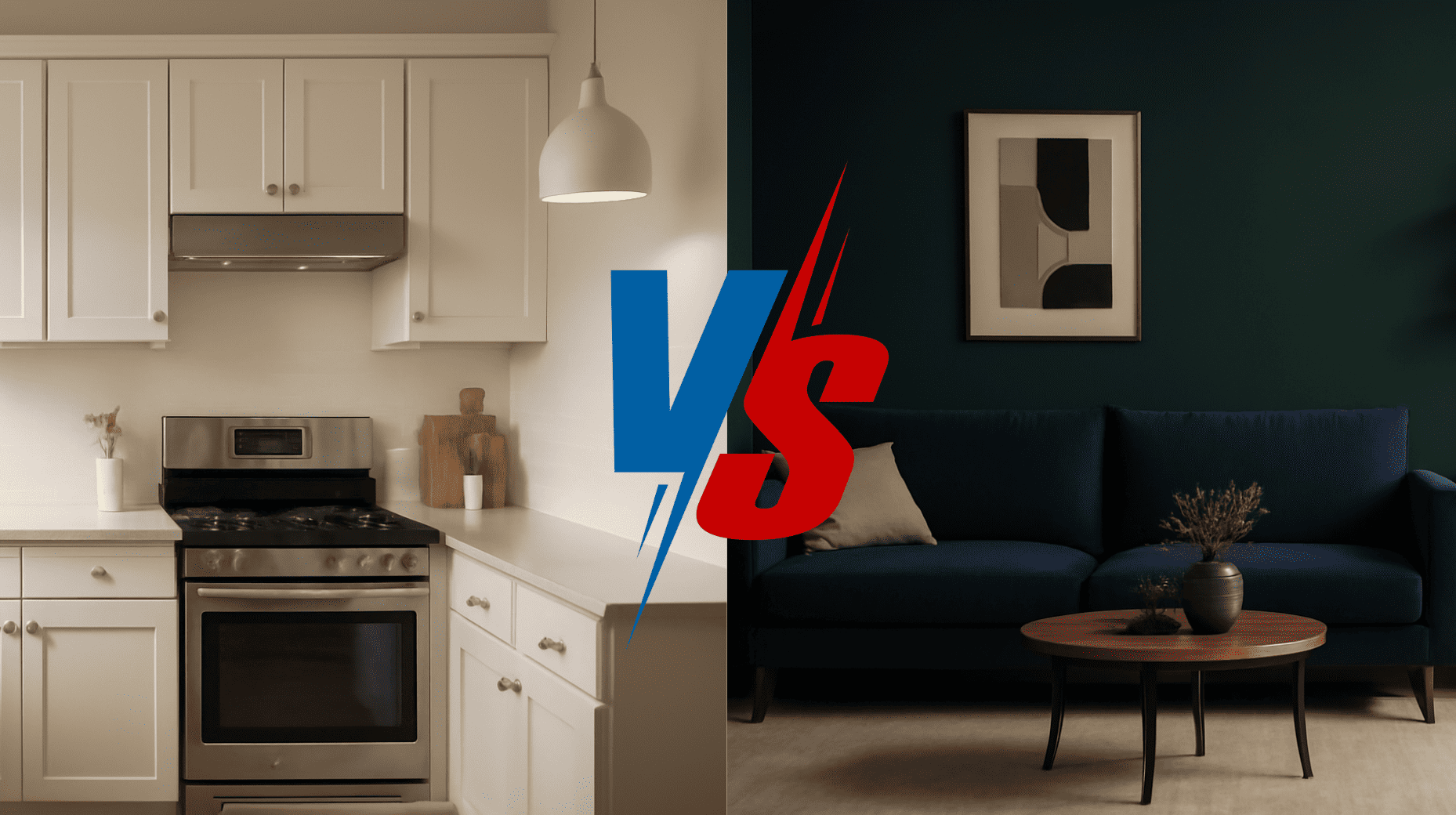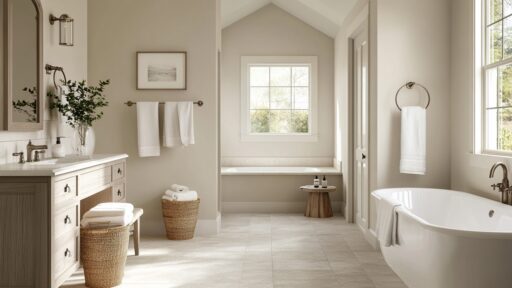Are you staring at paint samples, wondering whether to go with satin vs matte finish? You’re not alone!
This common decorating dilemma affects everyone from first-time painters to seasoned home improvement enthusiasts. If you’re looking for expert help, Renewed Walls Painting can guide you through the decision-making process with professional insight.
The finish you choose can completely change a room’s look and feel, and impact how easy it is to keep your walls looking fresh.
While satin offers a subtle shine that’s easy to clean, matte provides a rich, velvety look that hides imperfections.
Before you open that paint can, find out the differences between satin vs matte finishes.
This knowledge ensures you make the perfect choice for every room in your home.
You’ll appreciate taking a few minutes to understand these two popular paint options!
What are Satin and Matte Finishes?
When decorating or choosing products, you’ll often face a choice between satin and matte finishes.
These two popular options create very different looks and have their own set of benefits and drawbacks.
Understanding each’s unique qualities can help you make better choices for your home, makeup, or wardrobe.
Satin Finish
A satin finish in paint offers a soft sheen with a subtle shine, providing a smooth surface without being too glossy.
It sits between matte and high-gloss on the shine scale.
Satin paint catches light gently, creating a warm feeling in rooms.
It works well in kitchens, bathrooms, and hallways as it’s easier to clean than matte paint.
Satin is more durable against moisture and can be wiped down when dirty.
This finish is particularly good for trim work and in homes with children or pets where walls need frequent cleaning.
Matte Finish
A matte paint finish is flat and non-reflective, completely lacking shine.
It absorbs light rather than reflecting it, creating a uniform wall appearance.
Matte paints have grown popular for their contemporary appeal in modern homes.
They’re perfect for living rooms, bedrooms, and ceilings where a calm feeling is desired.
Matte paint excellently hides wall imperfections like bumps, patches, or uneven textures.
However, it can be harder to clean without damaging the finish.
Many designers choose matte for its refined look and ability to make bold colors appear richer and more saturated.
Key Differences Between Satin and Matte
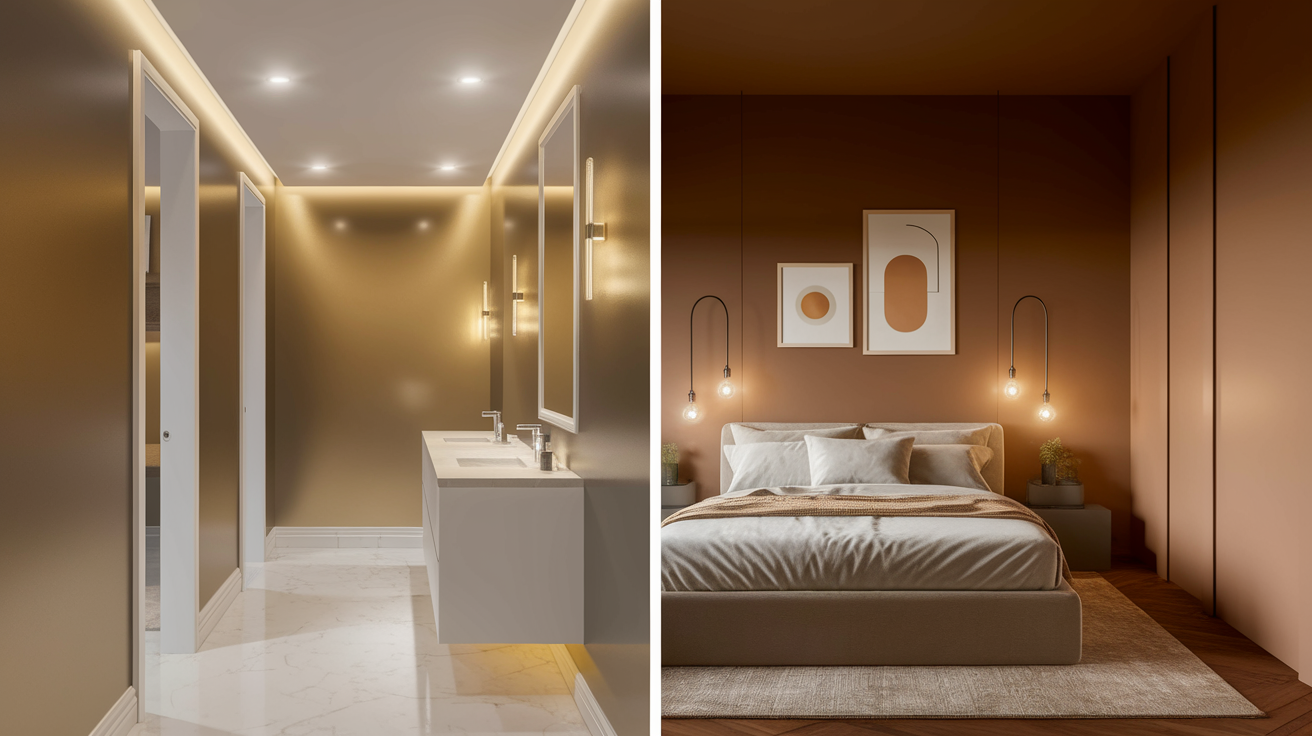
Choosing between satin and matte finishes for your paint project comes down to understanding their unique properties.
These finishes create distinct looks and have different practical benefits.
1. Shine and Reflectivity
Satin paint has a noticeable but gentle sheen that reflects light softly.
When light hits a satin-painted wall, it creates a subtle glow that adds dimension to the room.
Matte paint, in contrast, absorbs light rather than reflecting it.
This creates a completely flat, non-reflective surface that doesn’t bounce any light back into the room.
The difference is most obvious when viewing the wall from an angle, when satin shows a soft luster while matte remains consistently flat.
2. Application Areas
Satin paint works best in high-traffic areas and rooms with moisture.
Kitchens, bathrooms, children’s rooms, and hallways benefit from satin’s durability and cleanability.
It’s also excellent for trim, doors, and cabinets.
Matte paint shines in living rooms, dining rooms, bedrooms, and ceilings where traffic is lighter.
It’s perfect for hiding wall imperfections in older homes and creating a refined backdrop for artwork and furniture.
Many designers choose matte for accent walls or rooms with architectural features.
3. Durability and Maintenance
Satin paint offers superior durability compared to matte finishes.
Its slightly glossy surface creates a protective barrier that resists stains, moisture, and mildew, making it easier to clean with a damp cloth.
Satin withstands repeated washings without losing its finish.
Matte paint is more delicate and challenging to maintain.
Scrubbing can burnish the surface, creating shiny spots that ruin the flat appearance.
Touching up matte walls is easier, however, as new paint blends more seamlessly with existing paint.
4. Visual Appeal
With its gentle sheen, satin paint creates subtle intricacy, making colors appear slightly richer and spaces feel more polished.
It can make small rooms seem somewhat larger by reflecting more light around the space.
Matte paint offers a more contemporary, velvety look that many designers prefer for its depth and richness.
Colors appear more saturated and true in matte finishes.
Matte creates a cozy, intimate feeling in rooms and provides a graceful backdrop that doesn’t compete with artwork or furnishings.
When to Choose Satin Over Matte?
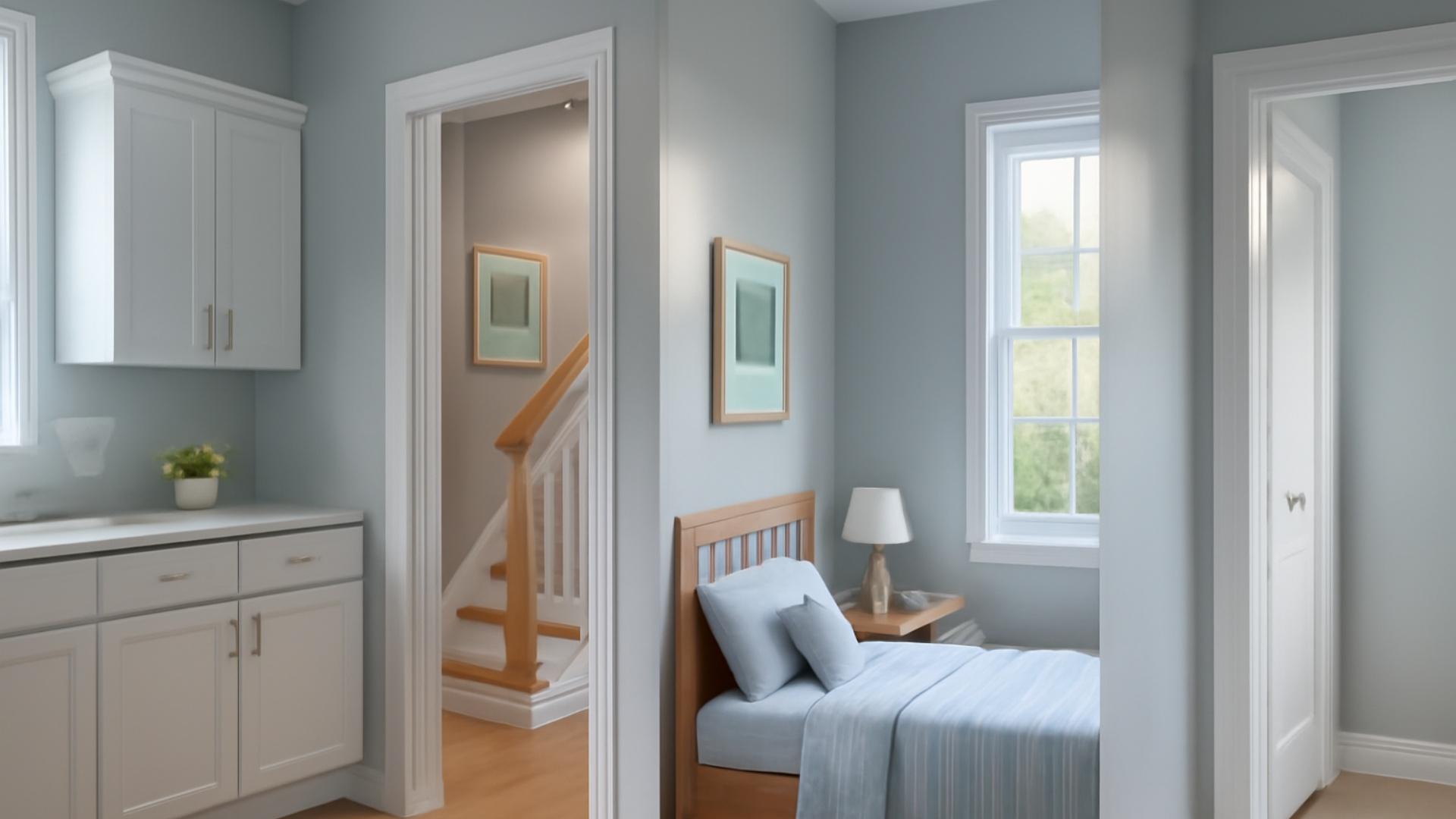
Satin paint is the better choice in many situations around your home.
You should select satin when you need a finish that can withstand daily life while still looking good.
In kitchens and bathrooms, satin resists moisture and food splatters better than matte, making cleanup much easier.
Choose satin for hallways, stairwells, and children’s rooms where walls get touched frequently.
It’s also perfect for trim work, doors, and window frames where you want a slight shine to make these features stand out.
Satin works well in rooms that don’t get much natural light, as its subtle reflectivity helps brighten the space.
If you have a busy household with kids or pets, satin’s durability makes it the practical choice.
Many homeowners prefer satin in their main living areas for its balanced look and easy maintenance.
When to Choose Matte Over Satin?
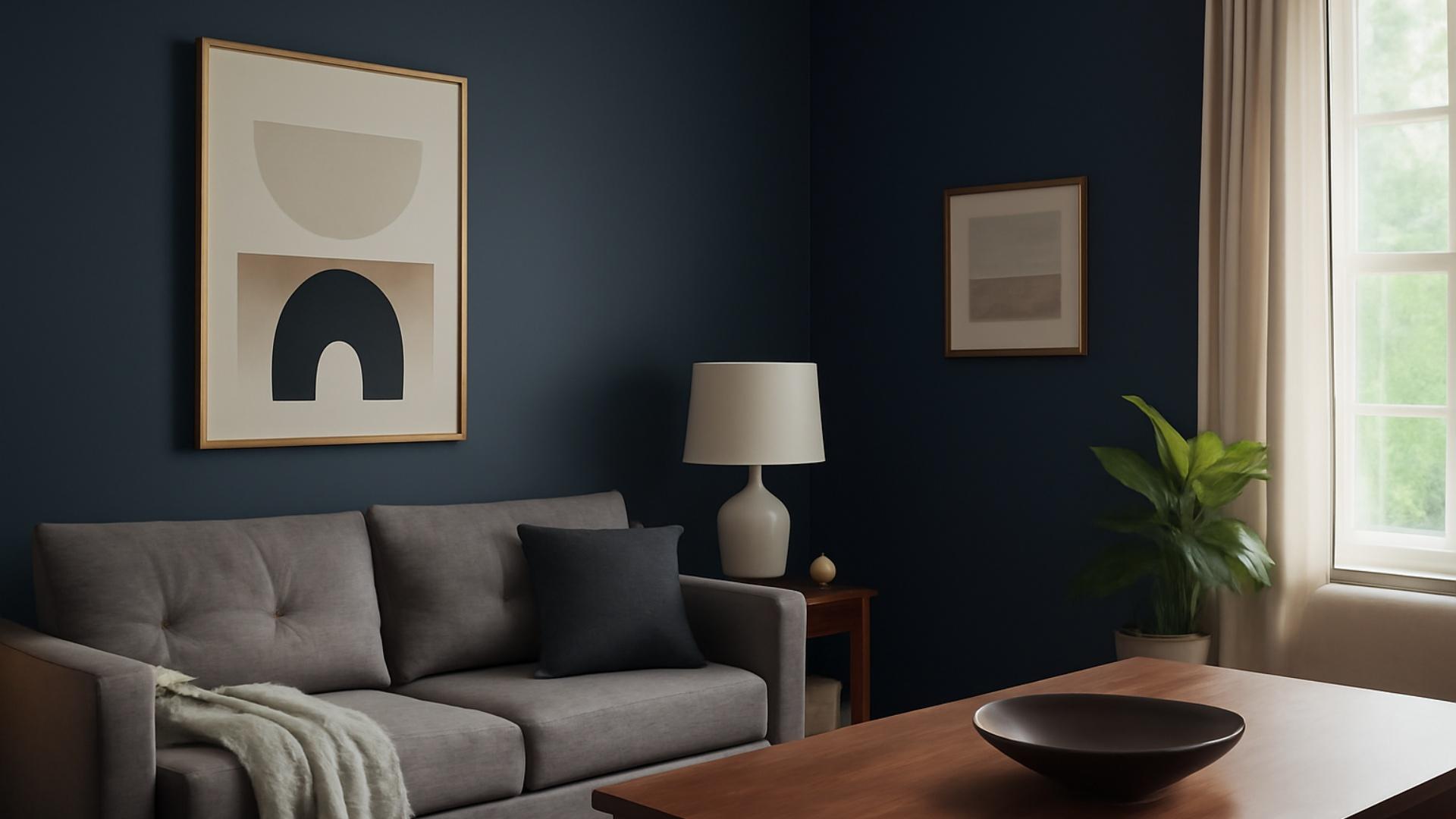
Matte paint is the smart choice when you want walls with a refined, velvety appearance.
Select matte for living rooms, dining rooms, and bedrooms where you want a calm, non-distracting background.
Matte is excellent for hiding wall imperfections.
It makes patches, bumps, and uneven textures less noticeable compared to satin.
Choose matte for ceilings to reduce glare from lights and windows.
Many designers prefer matte for accent walls or when using bold, rich colors because matte makes these colors look deeper and more true.
If you’re going for a modern, contemporary look in your home, matte creates that trendy flat finish popular in design magazines.
Matte also works well in low-traffic areas or adult spaces where walls don’t need frequent cleaning.
For older homes with character or historic properties, matte provides a more period-appropriate finish.
Pros and Cons of Satin Finish
Satin paint offers a balance between completely flat matte and highly reflective gloss finishes.
Before making your decision, consider these advantages and disadvantages of choosing satin paint for your walls.
| PROS | CONS |
|---|---|
| Polished, refined look | Shows imperfections and dust |
| Brightens spaces by reflecting light | It can appear too shiny for some rooms |
| Easy to clean | Reveals fingerprints and smudges |
| Adds visual depth | Hard to touch up without patches showing |
| Durable in busy areas | Costs more than matte |
| Resists moisture | Creates reflections in certain lighting |
When choosing between satin and matte, remember that satin works best in high-traffic areas where cleaning is frequent.
It’s particularly suited for rooms with moisture or where durability matters most, like kitchens, bathrooms, and hallways.
Pros and Cons of Matte Finish
Matte paint creates a completely flat, non-reflective surface that many designers prefer for its depth and intricacy.
Consider these key advantages and disadvantages before selecting matte for your painting project.
| PROS | CONS |
|---|---|
| Sleek, understated look | Shows wear over time (scuff marks) |
| Hides imperfections and fingerprints | Harder to clean, especially on walls |
| Perfect for modern or minimalist styles | It can appear dull compared to satin |
| Creates a subtle, natural appearance | Less durable in high-traffic areas |
| Makes colors look rich and true | Challenging to maintain in busy households |
| Reduces glare and reflection | More easily damaged by moisture |
Matte finish is ideal for low-traffic areas such as formal living rooms, dining rooms, and adult bedrooms, where walls are not often touched or cleaned.
It’s the perfect choice when the wall texture isn’t perfect and you want to minimize visible flaws.
Room Inspirations for Satin Paint
Satin paint creates a practical yet attractive finish for busy areas of your home.
It offers just enough shine to bring warmth to a space without the high reflectivity of gloss.
Here are some rooms where satin paint truly shines.
Kitchens
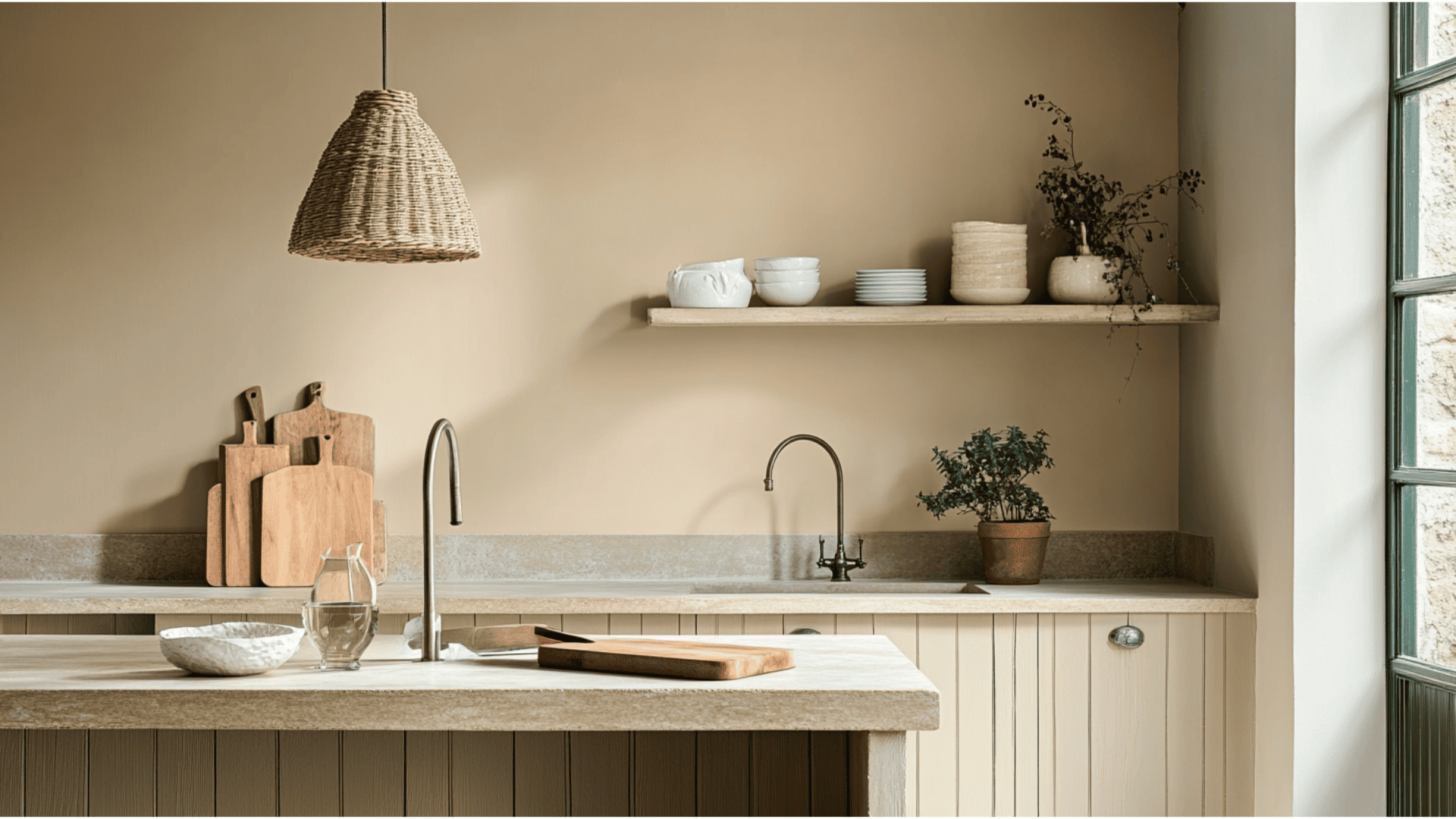
Satin paint is perfect for kitchen walls, where cooking steam, splatters, and frequent cleaning are facts of life.
The slight sheen makes wiping away cooking oil and sauce spots easy.
Satin also stands up well to moisture, making it ideal around sinks.
The gentle reflectivity brightens the space and complements both modern and traditional kitchen designs without looking too shiny.
Bathrooms
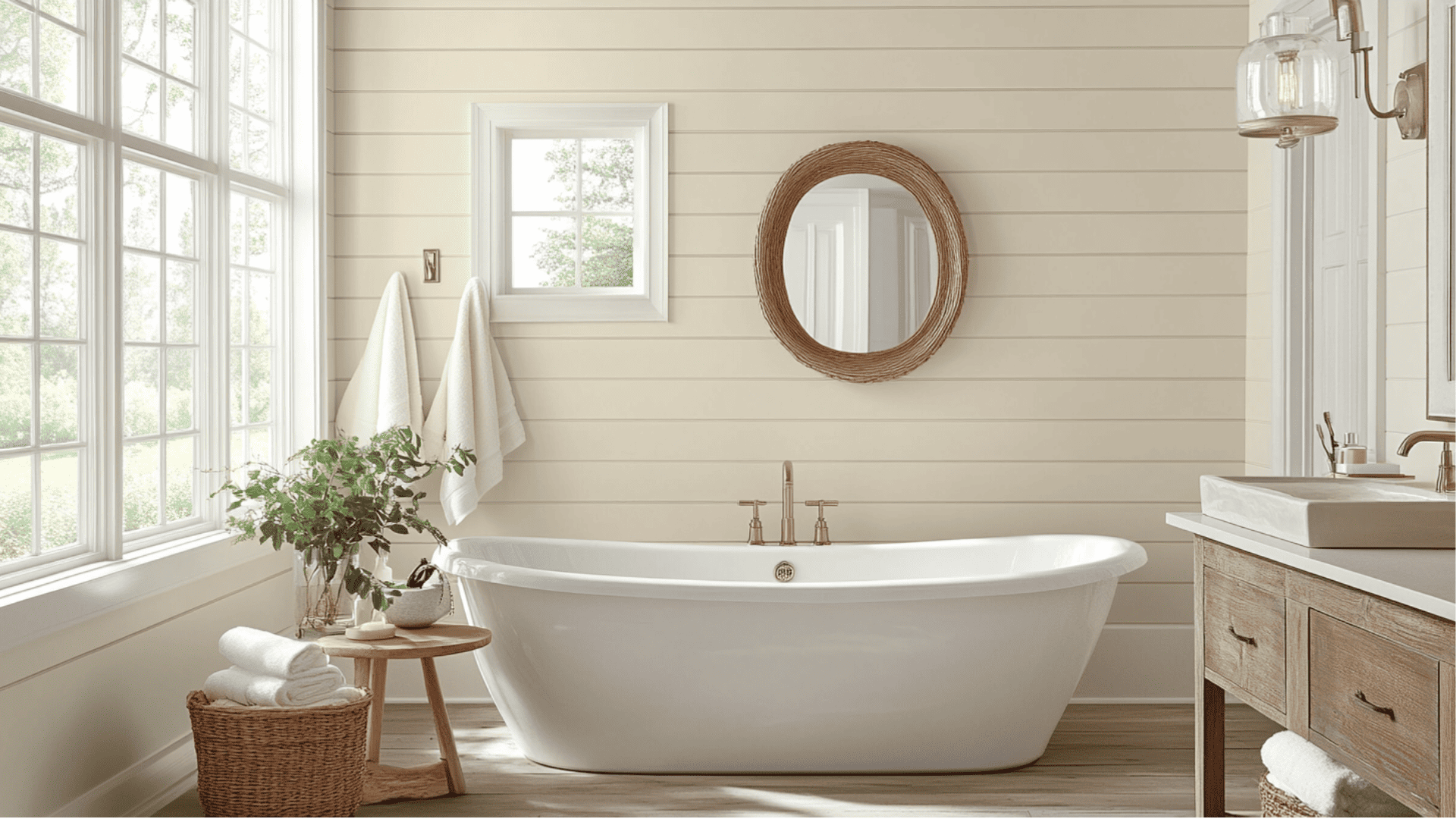
Bathrooms benefit greatly from satin paint’s moisture-resistant properties.
The humid environment won’t damage satin finishes as easily as matte.
Satin paint repels water droplets and can be wiped clean of soap scum.
The subtle shine enhances the feeling of cleanliness and makes small bathrooms feel larger by reflecting more light around the room.
Room Inspirations for Matte Paint
Matte paint creates a refined, calm atmosphere in the quieter spaces of your home.
Its non-reflective finish provides depth and richness to colors. It also hides minor wall imperfections.
Here are some rooms where matte paint creates the perfect backdrop for your life.
Bedrooms
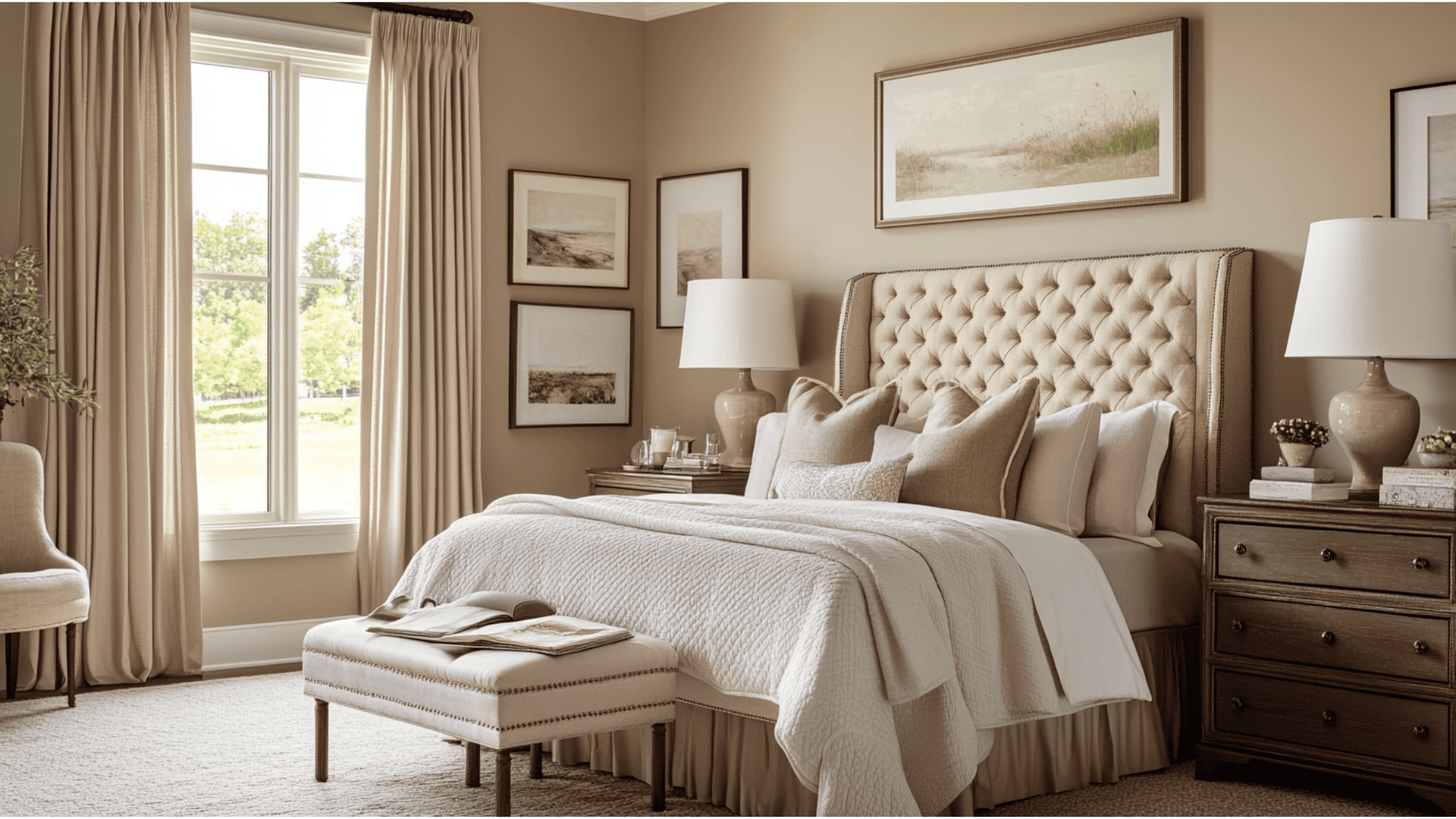
Matte paint creates a peaceful, restful environment perfect for bedrooms.
The non-reflective surface reduces glare from bedside lamps. It also cuts down on morning sunlight reflection.
This flat finish makes wall colors appear rich and velvety. Matte is ideal for creating a cozy sanctuary.
It works especially well with blues, greens, and soft neutrals.
These colors enhance the calming effect needed for good sleep.
Living Rooms
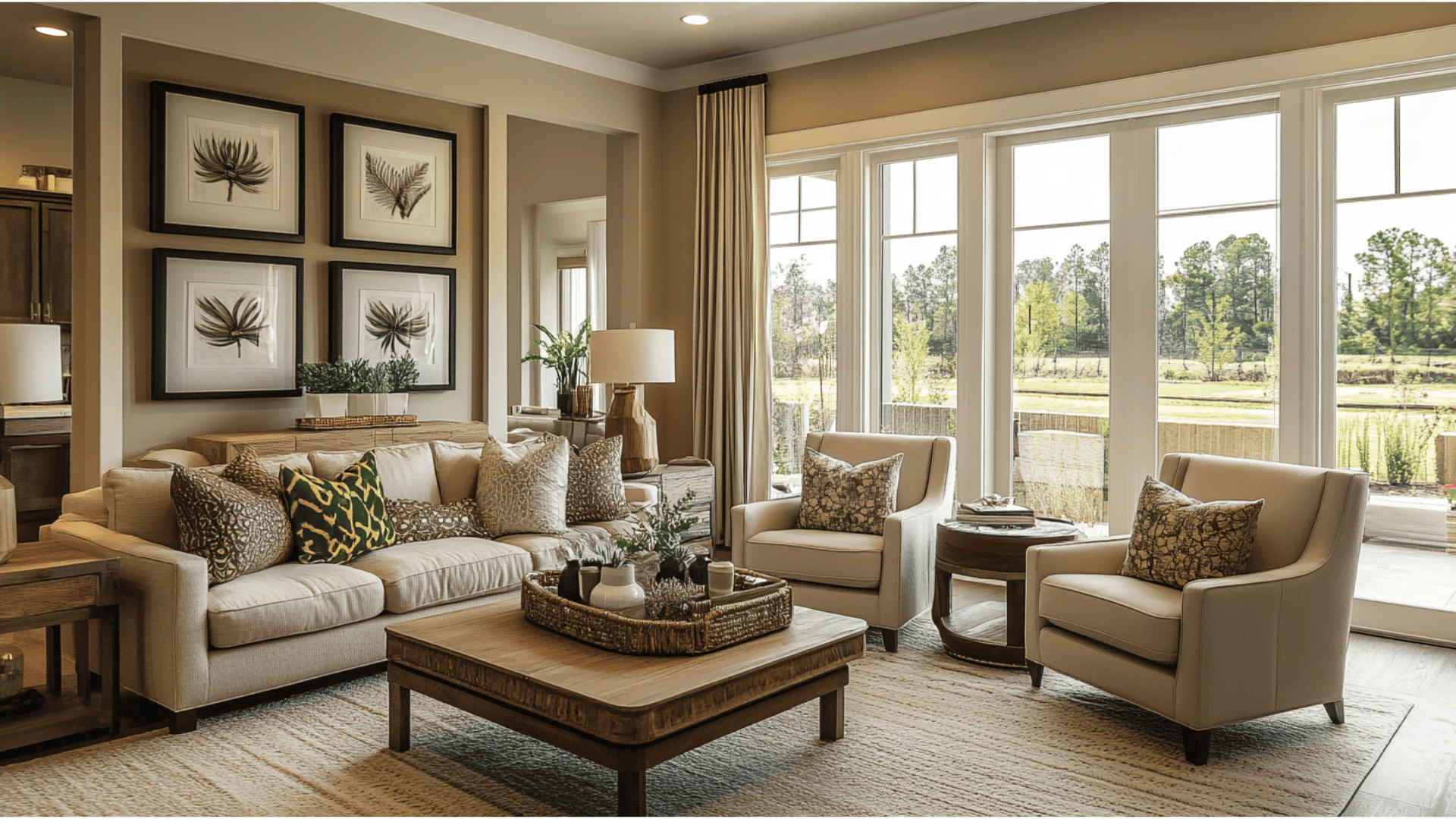
Living rooms benefit from matte paint’s refined appearance.
The flat finish provides a graceful backdrop for artwork and photos.
It doesn’t compete for attention with your decorative elements. Matte makes bold accent walls look more dramatic.
The non-reflective surface hides small wall imperfections. This is helpful in formal gathering spaces.
People spend time relaxing and conversing here. Imperfections are less noticeable with matte paint.
How to Choose Between Satin and Matte Paint
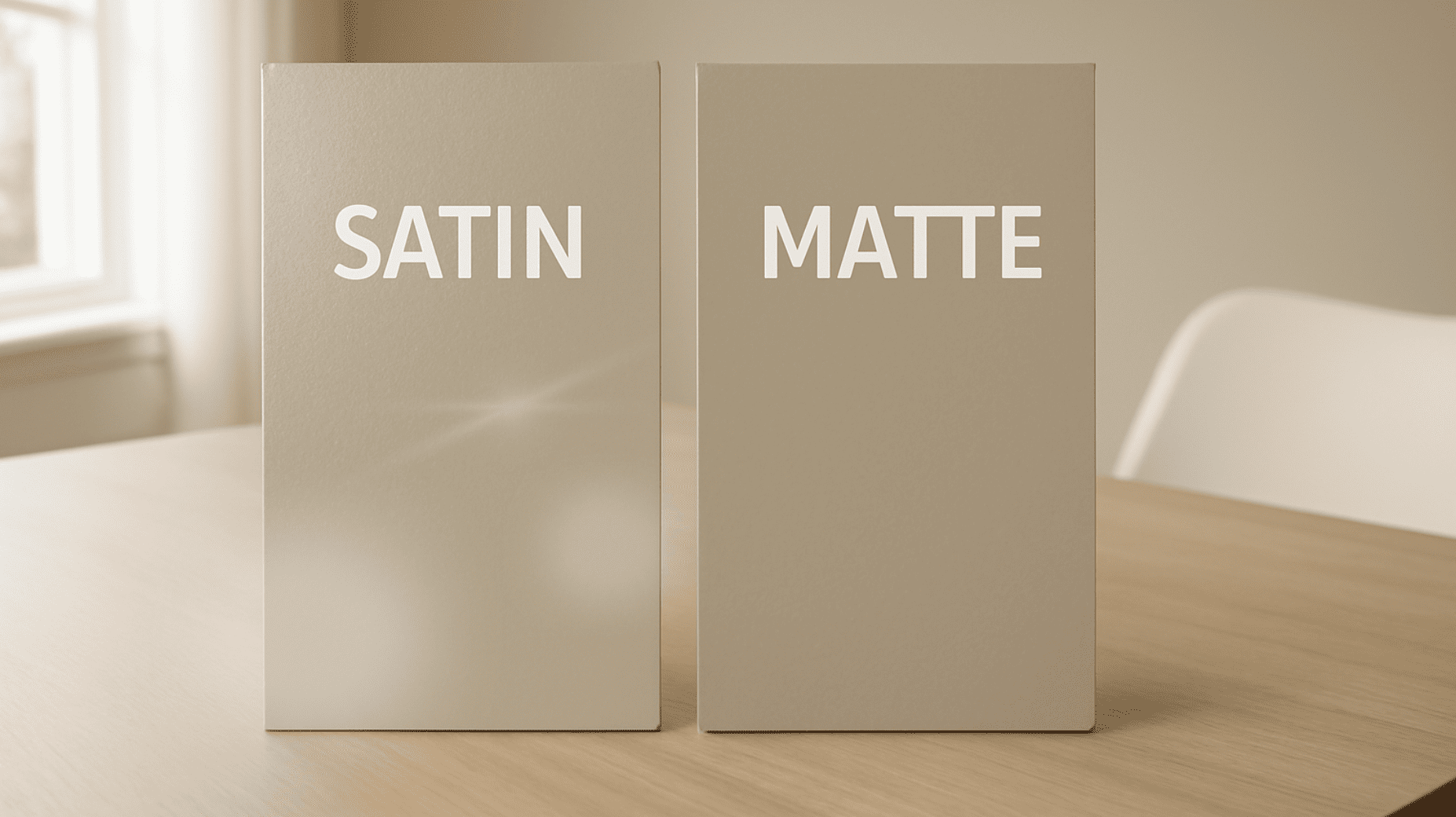
Selecting the right paint finish affects both appearance and practicality.
Here’s a simple guide to help you decide between satin and matte:
- Consider traffic. Use satin in busy areas like hallways and kitchens.
- Check the wall condition. Matte hides imperfections better than satin.
- Think about cleaning. Satin wipes clean easily; matte is harder to maintain.
- Assess lighting. Darker rooms benefit from satin’s reflective quality.
- Match your style. Modern looks suit matte; traditional spaces often prefer satin.
- Test before deciding. Paint small areas to see how each looks in your space.
Many homes combine both finishes, satin in busy areas and matte in quieter, formal rooms.
Choose what works best for each specific space.
The Bottom Line
When deciding between satin vs matte paint, remember there’s no single “right” answer for every situation.
The best choice depends on your specific room, lighting conditions, and lifestyle needs.
Satin shines in busy areas where durability and easy cleaning matter most.
Matte creates a refined backdrop in formal or low-traffic spaces.
Many homeowners actually use both finishes throughout their homes.
They select the most appropriate option for each room’s unique requirements.
Whatever you choose, understanding the strengths and limitations of satin vs matte finishes is important.
This knowledge means you’ll enjoy your paint job for years to come.
Happy painting! Enjoy your refreshed space with the confidence that comes from making an informed decision.
Ready to refresh your home but not sure where to start? Let our home decor blogs point you in the right direction!

